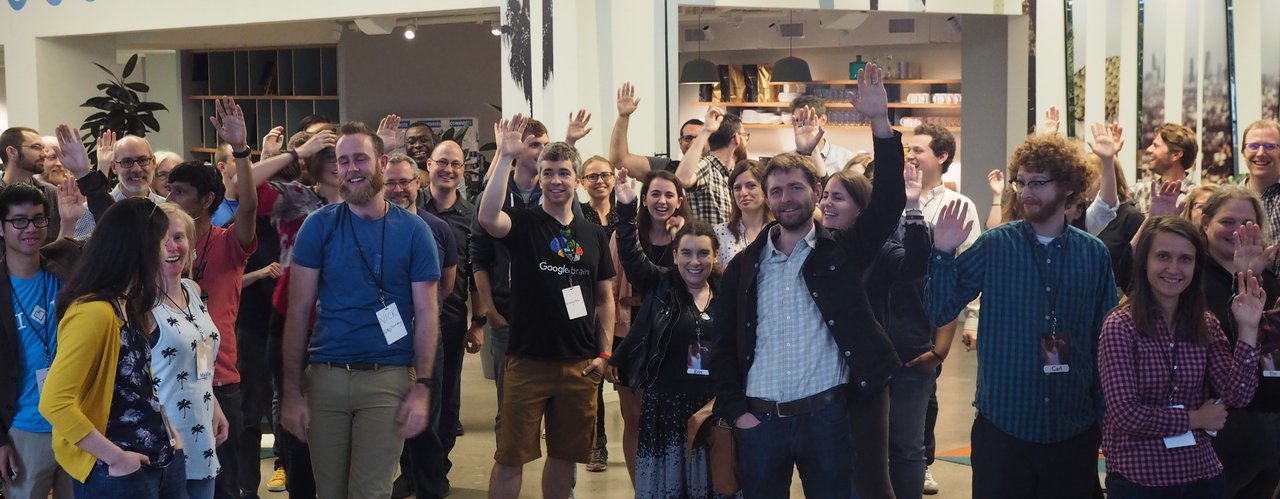Friday, June 23, 2017 From rOpenSci (https://ropensci.org/blog/2017/06/23/community/). Except where otherwise noted, content on this site is licensed under the CC-BY license.
What’s that? You’ve heard of R? You use R? You develop in R? You know someone else who’s mentioned R? Oh, you’re breathing? Well, in that case, welcome! Come join the R community!
We recently had a group discussion at rOpenSci’s #runconf17 in Los Angeles, CA about the R community. I initially opened the issue on GitHub. After this issue was well-received (check out the emoji-love below!), we realized people were keen to talk about this and decided to have an optional and informal discussion in person.

To get the discussion started I posed two general questions and then just let discussion fly. I prompted the group with the following:
- The R community is such an asset. How do we make sure that everyone knows about it and feels both welcome and comfortable?
- What are other languages/communities doing that we’re not? How could we adopt their good ideas?
The discussion focused primarily on the first point, and I have to say the group’s answers…were awesome. Take a look!

🔗 How to find the community
Everyone seemed to be in agreement that (1) the community is one of R’s biggest strengths and (2) a lot within the R community happens on twitter. During discussion, Julia Lowndes mentioned she joined twitter because she heard that people asked and answered questions about R there, and others echoed this sentiment. Simply, the R community is not just for ‘power users’ or developers. It’s a place for users and people interested in learning more about R. So, if you want to get involved in the community and you are not already, consider getting a twitter account and check out the #rstats hashtag. We expect you’ll be surprised by how responsive, welcoming, and inclusive the community is.
In addition to twitter, there are many resources available within the R community where you can learn more about all things R. Below is a brief list of resources mentioned during our discussion that had helped us feel more included in the community. Feel free to suggest more!
- R-Ladies - - a world-wide organization focused on promoting gender diversity within the R community, with more than 30 local chapters
- Local R meetup groups - a google search may show that there’s one in your area! If not, maybe consider starting one! Face-to-face meet-ups for users of all levels are incredibly valuable
- Rweekly - an incredible weekly recap of all things R
- R-bloggers - an awesome resource to find posts from many different bloggers using R
- DataCarpentry and Software Carpentry - a resource of openly available lessons that promote and model reproducible research
- Stack Overflow - chances are your R question has already been answered here (with additional resources for people looking for jobs)
🔗 Improving inclusivity
No community is perfect, and being willing to consider our shortcomings and think about ways in which we can improve is so important. The group came up with a lot of great suggestions, including many I had not previously thought of personally.
- Take the time to welcome new people. A simple hello can go a long way!
- Reach out to people we may be missing: high school students, people of different backgrounds, individuals in other countries, etc.
- Avoid the word “just” when helping others. “Here’s one way of thinking about that” » “Just do it this way”
- Include people whose primary language is not English in the conversation! Consider tweeting & retweeting in your own language to extend the community. This helps include others and spread knowledge!
- Be involved in open projects. If you chose to turn down an opportunity that is not open, do your best to explain why being involved in open projects is important to you.
- David Smith recently suggested getting #rbeginners to take off as a hashtag - a great way to direct newer members’ attention to tips and resources!
- Be conscious of your tone. When in doubt, check out tone checker.
- If you see someone being belittling in their answers, consider reaching out to the person who is behaving inappropriately. There was some agreement that reaching out privately may be more effective as a first approach than calling them out in public. Find strong arguments against that strategy and in favor of a public response from Os Keyes.
- Also, it’s often easier to defend on behalf of someone else than it is on one’s own behalf. Keep that in mind if you see negative things happening, and consider defending on someone else’s behalf.
- Having a code of conduct is important. rOpenSci has one, and we like it a whole lot.
And, when times get tough, look to your community. Get out there. Be active. Communicate with one another. Tim Phan brilliantly summarized the importance of action and community in this thread:
🔗 Thank you
Thank you to all who participated in this conversation and all who contribute to the community to make R such a fun language in which to work and develop! Thank you to rOpenSci for hosting and giving us all the opportunity to get to know one another and work together. I’m excited to see where this community goes moving forward!

